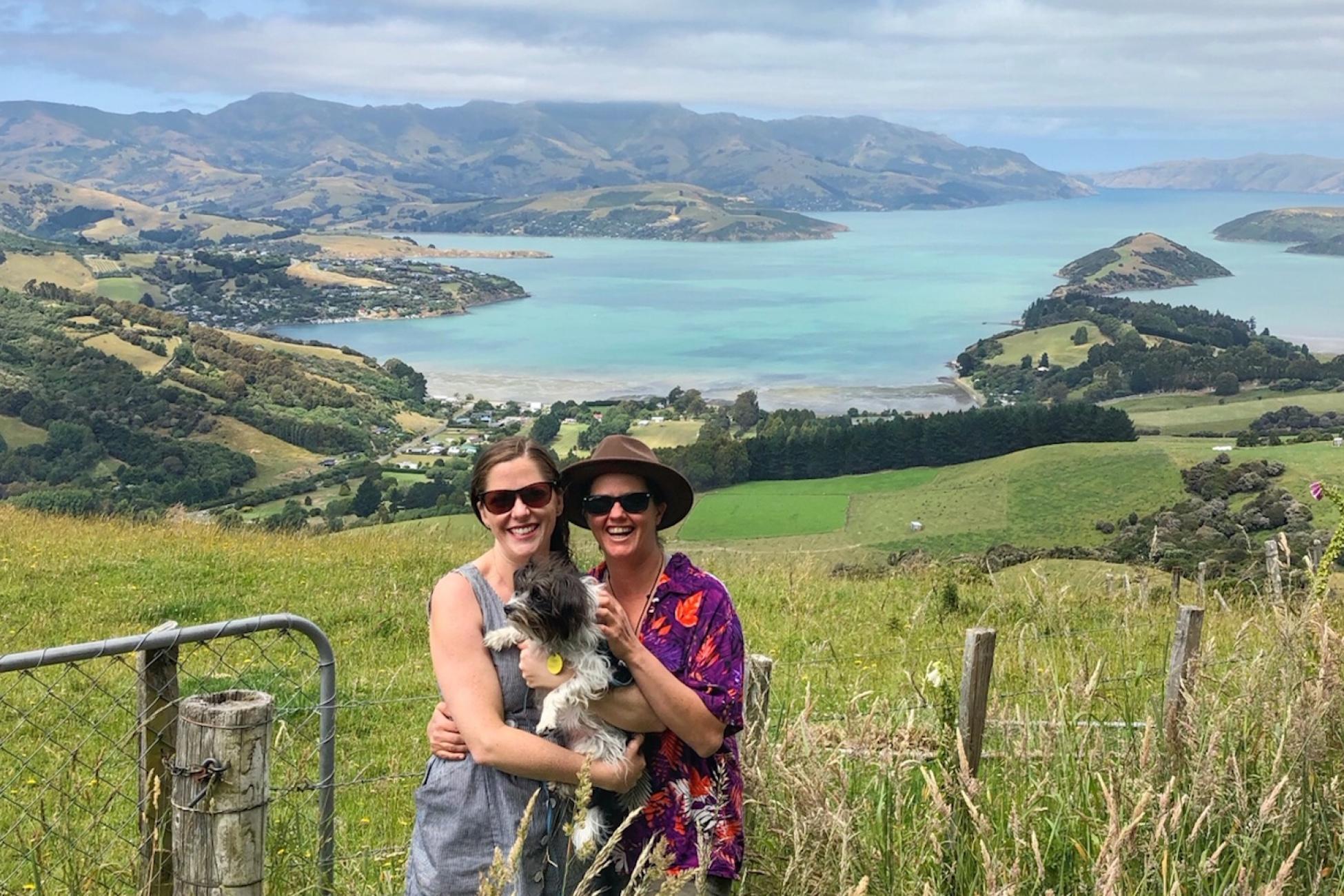For years, I’ve lived in the grey zone.
As a freelance journalist and Verge’s contributing editor, I’ve been working remotely for the better part of the last decade. Currently, I’m based in New Zealand (Aotearoa), where I’ve been housesitting across the South Island.
It’s a lifestyle that’s decidedly unconventional in some ways (I’ve lived everywhere from an off-grid tiny house in the country, to a modern retirement complex beside the airport), but surprisingly standard in others (like most people, my nine to five involves staring at a computer screen.) However, it's a lifestyle that's allowed me to fully immerse in new communities in a way that wouldn’t otherwise be possible.
But for all its benefits, the grey zone isn’t always an easy place to be.
The land of opportunity is also a dead zone of ambiguity. From filing taxes to navigating healthcare systems, bureaucracy is not designed for those of us who live outside the norm, including digital nomads and vanlifers.
So when Canada’s Prime Minister Justin Trudeau urged Canadians home on March 16, 2020—around the same time that New Zealand’s PM Jacinda Ardern asked tourists to leave—it wasn’t at all surprising that neither of the messages applied to me.
Here in New Zealand, I’m not quite an immigrant (I have no claim of residency or citizenship) and I’m not quite an expat (I don’t have a fixed address or even a job in NZ). Yet, I’m more than just a tourist or a working holidaymaker; most of my income is derived from sharing stories of Aotearoa with North American readers.
My situation, while complex, is far from unique. It’s estimated there are roughly 2.8 million Canadians living abroad, including those who work or study overseas.
Returning to Canada also presented complications. It would mean transiting through a minimum of three international airports, all in places with known community transmission. There were the bureaucratic hurdles; even though I file taxes in Canada, I’m no longer eligible for OHIP. (This has since changed; last week many provincial healthcare systems waived waiting periods to accommodate returning expats.) Then, there was the clincher: My partner, who is Australian, would only be able to stay in Canada for 90 days (if she was able to enter the country at all). And we couldn't bunker down in Australia for the same reason.
Ultimately, it was this—the very real fear that we could potentially be separated for months on end—that cemented our decision to stay in New Zealand.
My situation, while complex, is far from unique. It’s estimated there are roughly 2.8 million Canadians living abroad, including those who work or study in another country. Lockdowns and a lack of flights aren’t the only things keeping people overseas—so are relationships, children, visa and residency issues, and concerns about healthcare and housing. For any expat, digital nomad or working holidaymaker, going “home” will never be as simple as packing a suitcase and getting on a plane. (As my friend and fellow digital nomad Lauren Keith writes for Lonely Planet about her decision to stay in Turkey: "And where is home? Where is ‘back’?") For these Canadians, it means dismantling their entire lives with almost no notice in a time when nothing is clear.
Our decision made, we learned that the grey zone also isn’t a great place to be during a global pandemic.
While the financial ramifications of COVID-19 will affect people for months and likely years to come, it hit us hard and fast. We were two days away from starting a seven-month housesit when the homeowners rightfully cancelled their trip abroad, leaving us without a place to live. Two of my regular clients ended contracts. And a major project that I’ve dedicated months (and thousands of dollars) to was put on hold indefinitely.
Yet, I can’t help but think of when I was 18 and backpacking around Europe for the first time. One very snowy day early in my trip, my friend Helka and I arrived in Dresden, Germany without a hostel reservation, a guidebook or—if I’m being honest—a clue. The Internet wasn’t yet a thing, and the staff at the info centre didn’t speak any English. Our back-up plan to sleep in the train station was aborted when we realized that said train station was open-air (and freezing).
As afternoon turned to night and optimism turn to desperation, we hopped on a tram to stay warm. It was packed with people eager to get home after a long day at work.
“Can anyone help us?” I blurted out, praying that someone spoke English.
Before I was even done pleading our case, a man stood up: "I can help."
He offered to walk us to a hostel that he knew of and, if it was closed or full, a place to stay at his house.
Travel, if nothing else, has taught me that if you’re brave enough to ask for help, you have a better chance of receiving it.
All we had to do was ask. Moving frequently means that we don’t know many people in New Zealand. But within a day, we were homed again; a family that we’ve housesat for offered us a granny flat on their property. Another couple brought us groceries during our mandatory quarantine. And my friends back home in Canada have opened their sympathetic ears, even when burdened with heavy fears of their own.
As a self-employed journalist, I’m wary about what the future will bring. But I also feel like I’ve been training for this for years. Travel throws at you unexpected curveballs that you have to problem-solve at a moment’s notice. It challenges you, makes you feel uncomfortable, and also brings you moments of joy and connection in countless unexpected places and ways.
And if that doesn’t describe the landscape that’s unfolding before us, I don’t know what does.




